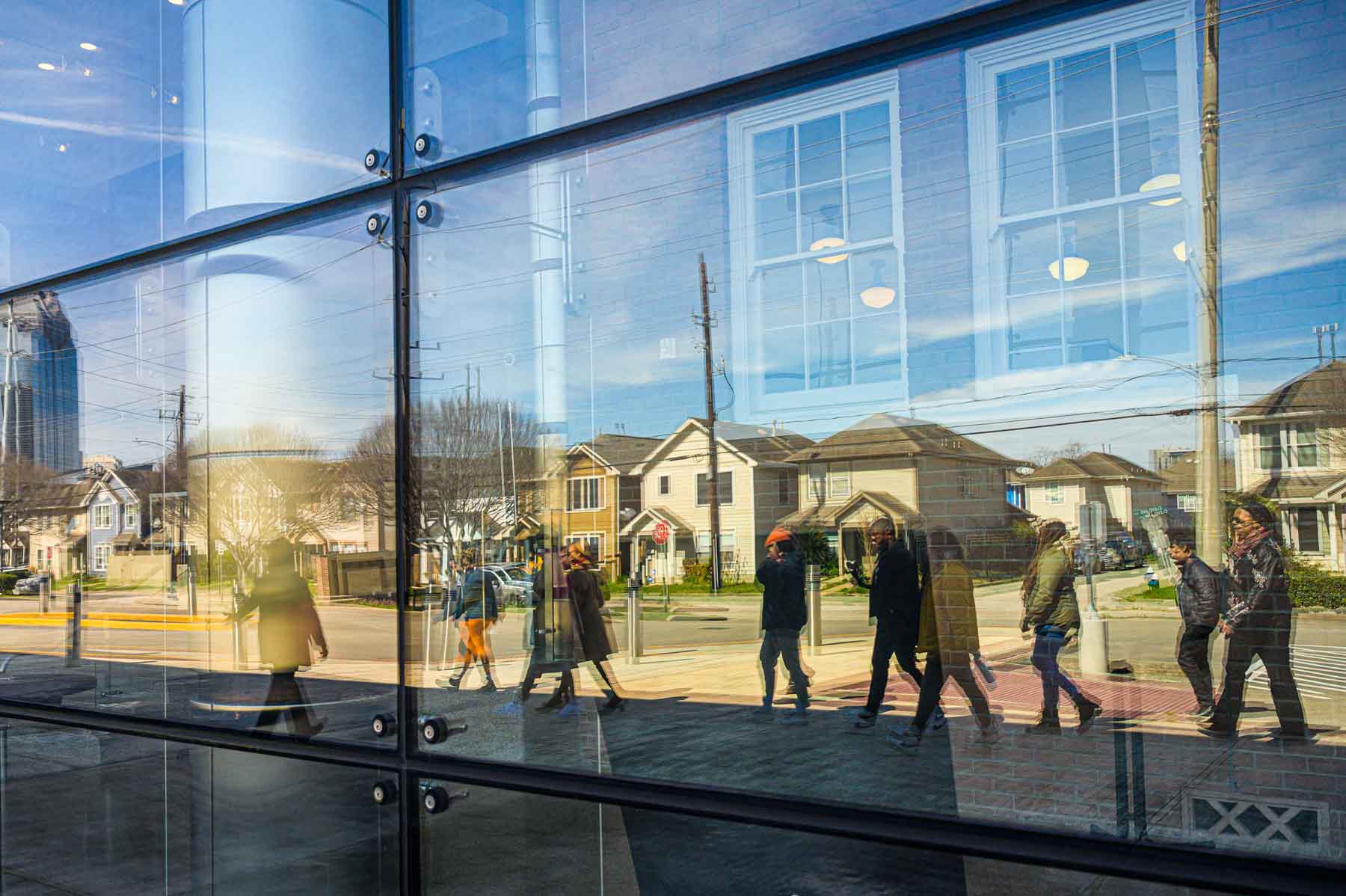James T. Wagoner '29 had a passion for travel and a love for Rice. In his will, he made arrangements for the creation of a study-abroad scholarship in memory of his late wife and parents. The Wagoner Foreign Study Scholarship allows students and alumni the chance to pursue research abroad for a duration ranging from four weeks to one year. You can find more information about the Wagoner award for graduate students at https://graduate.rice.edu/academics/finance/wagoneraward or email Dr. Randi McInerney at gradfellowships@rice.edu.
Please join us in congratulating the following students for winning the Wagoner Scholarship:
Karine Raynor, Art History
Raynor is returning to the Jacques-Doucet Literary Library in Paris to finalize her dissertation, titled "Mecanomorphs and the Articulated Body/Machines of Dada: From Object-based Practices to Performance Art." Her research delves into the transition from object-based artistic approaches to performance art within Paris Dada, with a specific emphasis on the artist Francis Picabia.
Samhita Das, Anthropology
Das is traveling to India to explore the consequences of two contrasting medical technologies: hysterectomy and uterine transplant surgery. While metropolitan areas like Mumbai and Delhi see uterine transplantation as a beacon of hope for the future, remote villages in Beed, Western India, are grappling with the ramifications of prevalent and unethical hysterectomies, leading to the emergence of "Wombless Villages." Additionally, she aims to document the real-life experiences of individuals navigating these medical interventions.
Fernanda Morales Calva, Psychological Sciences
Morales-Calva's research focuses on Alzheimer's and its impact on underrepresented populations. Her goal is to gain insights into the disparities in Alzheimer's risk among Latino and non-Latino populations in both the United States and Mexico.
Mai Lootah, Religion
Lootah will undertake a comprehensive archival research project in Europe and Turkey that delves into the reactions to the appearance of two consecutive comets during the "Republic of Letters" era in 1664 and 1665. This period was marked by rich cultural and intellectual exchange, and the comets sparked extensive correspondence among European observers, culminating in the transmission of information to the Ottoman Sultan's court in Edirne. Lootah’s investigation will follow the continental routes taken by the correspondences of the “Republic of Letters,” with a temporal focus on the five-month period of the comet apparitions and the subsequent year. By analyzing these archives, Lootah aims to compare the religious and scientific cosmologies of Ottoman and European writers across geographical and national boundaries.
Abha Lal, Anthropology
Lal’s project explores the relationship between law, extractive industries, and environmental governance, using the case of iron ore mining in Goa, India, as a focal point. Through ethnographic and archival research, her study seeks to understand how various actors within the legal arena advance constitutional rights to either mitigate or propagate extraction and assesses the consequences of the judicialization of the environment on different communities in Goa. She's also looking at the history of iron ore mining in Goa, from when the Portuguese ruled to now, to see what has stayed the same and what has changed in how things are governed.
Eric Wuesthoff, Ecology and Evolutionary Biology
Wuesthoff is working in collaboration with local researchers and managers in Madagascar to explore the seed dispersal patterns of brown lemurs (Eulemur fulvus) within and between intact rainforests and regenerating forests. His research aims to support restoration efforts. Furthermore, Wuesthoff plans to provide conservation recommendations to the local community based on his findings once the data collection is complete.
Kara Titus, Ecology and Evolutionary Biology
Titus is researching whether corals can utilize feces as a source of symbionts to recover from heat stress and avoid coral death. Her study involves investigating the potential for bleached adult corals to acquire Symbiodiniaceae from fish feces. This will be explored through an experimental study involving bleached corals and the use of consumer fish feces.
Joyah Watkins, Biosciences
Joyah is going to Belize to research Striped parrotfish. She'll be examining how the variety of viruses in their feces changes as they mature and whether these viruses pose any harm.
Dhiraj Manoj Jain, Systems, Synthetic and Physical Biology
Jain is conducting research in Germany to examine the nervous system of Hydra vulgaris. He's applying a method called optogenetics, where light is used to manipulate cells. By introducing specific genes into Hydra, he can manipulate its nerves using light. This research aims to enhance our understanding of Hydra's nerve functioning and why it can regenerate so well.
Rae Atkinson, Architecture
Atkinson is heading to Japan to explore the historical and contemporary influence of the shoji screen on domestic spaces. By visiting a variety of Japanese homes, she will gather observations and analyze how spaces are organized in response to the lighting and acoustical effects of shoji screens. The insights gained from this analysis will be used to shape the spatial arrangements proposed in her thesis. The trip to Japan is crucial for acquiring the necessary knowledge to effectively incorporate her partition system into the design of domestic spaces.
Jeannette Ingabire, Systems, Synthetic and Physical Biology
Inagbire is working towards understanding how neural activity influences behavior, aiming to advance therapies for neurological diseases and improve the development of stronger brain-computer interfaces. To achieve this goal, she plans to use the latest technology to image the neural activity of drosophila melanogaster. The process involves precisely mapping the recorded neural activity to the observed behavior and quantifying that behavior using LiftPose3D.
Kashif Liaqat, Mechanical Engineering
Liaqat’s work aims to harness physics-driven machine-learning techniques to optimize the operational strategies of Concentrated Solar Plants (CSP), thereby reducing the cost of power production and increasing their potential implementation and impact.

